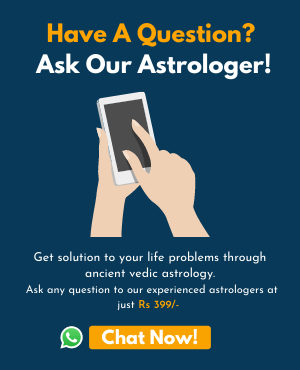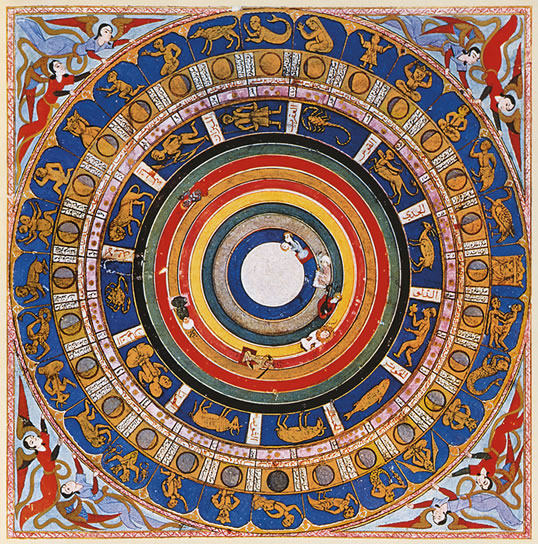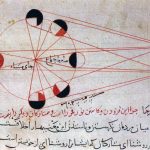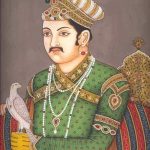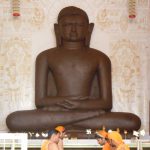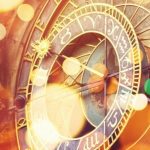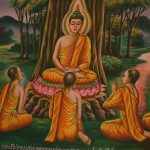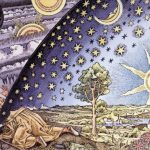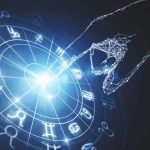Known as ‘ilm al-nujum’, the science of the stars is intimately connected to astrology in Islam. Rhrough the many strides made by ancient and medieval Islamic people in science, even astrology has evolved over time. There are concepts in Islam that make the meanings that you get from the night sky altogether different from those in Vedic or Western codes. Want to know your astrology birth chart in Islam? Or maybe just an understanding of astrology in the Islamic way? This article can help answer some questions about both.
Astrology and Numerology in Islam
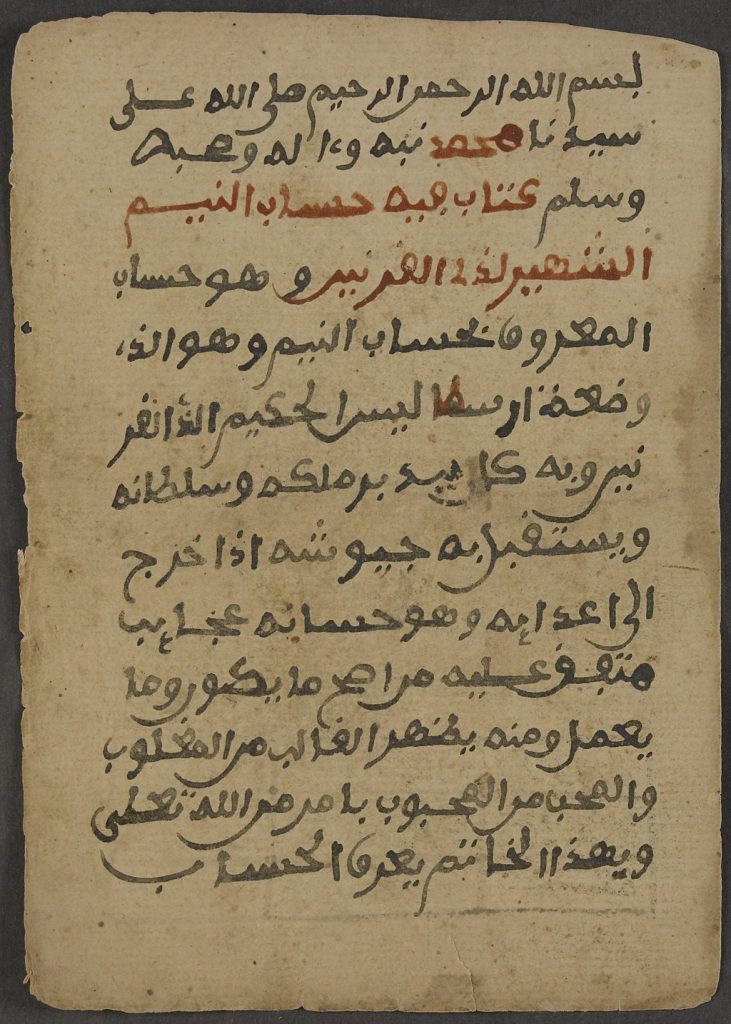
As with most astrology concepts in Islam, the use of numerology can be debated. The Prophet Mohammad felt that trying to predict the future would cause problems for people and distract them from a larger end goal of serving Allah. However, numerology may be an exception, because it needs mathematics and sometimes a scientific approach, which Islam supports. If you are interested in Islamic numerology way it works is that you must write your entire name. Give each letter a number value, and add up the numerical digits of your date of birth. Combining them with the number values in your name will give you one number which is your “life path number.” It is said to help you figure out a role for yourself in society, as well as the career you should have.
Astronomy and Astrology in Islam
It’s important that one understands the relationship between astronomy and astrology in Islam. The term ‘ilm al-nujum’ in early Arabic sources has been used to talk about both concepts. Later on, in medieval Islamic sources, it was translated as the “science of the stars”, making it closer to astrology. It was clearly distinct from astronomy, which scholars began calling ‘ilm al-haya’, or the “science of the figure of the heavens.” This difference is important because even today there are scholars who question the scientific use and value of astrology. The fact remains, however, that to make predictions in the field, one needs a great deal of scientific knowledge. It’s necessary for scientific debate and truth that both astronomy and astrology in Islam be continuously studied.
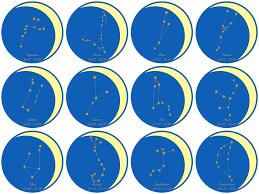
Prophet Idris, a figure who comes up even in the Old Testament, is the ancient founder of ilm al-nujum. His special interest was in the potential effects of cosmic rays on all living creatures. Beyond this, his work laid the foundations of philosophy and science that Greek scholars went on to use. Born in Babylonia, he later moved to Egypt. According to old historical texts, it seems that astrology too developed first in Babylonia and then spread to Egypt from there.
His science focuses on precise movements of stars and needed complex calculations behind them. This makes it a highly specific study, which later scientists and astronomers may have sidelined or left out after his death. Astrology today focuses on the sun as the only star, which means that his work likely did not inform astrological inquiries at present.
Astrology in Medieval Islam
You need a background in medieval times to understand how astrology first took shape in the lives of Islamic people. They considered the knowledge of the celestial bodies in the sky to be essential because those who lived in desert regions and travelled at night would look to them for guidance. Think about it like this: constellations are like landmarks. In a time when technology wasn’t as advanced, people resorted to cues from nature to figure out directions, like through the position of the stars. And as the religion of Islam began, followers would need even more information from the sky. The appropriate prayer hours, where the sacred site of the Kaaba lay and the precise orientation of the mosque became serious queries that only astronomy and astrology could answer.
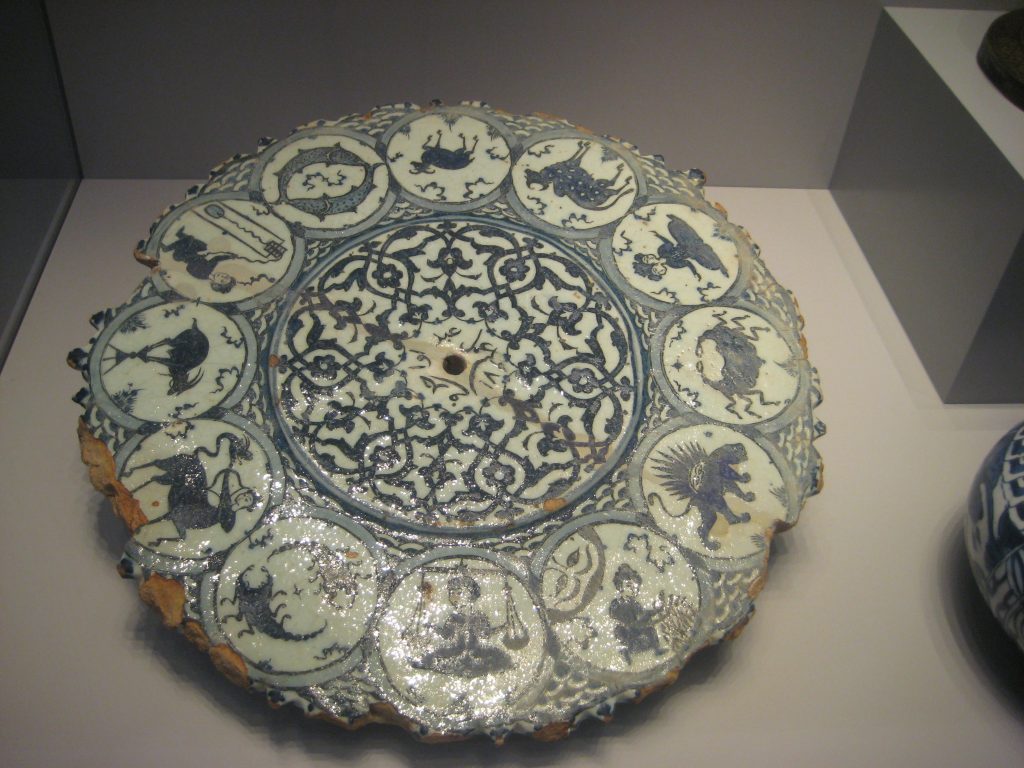
With a strong and early inclination for scientific inquiry, Arabs began developing these disciplines through observatories and texts. In the 8th century, Arabic scholars in Baghdad built a glorious library and observatory of astrological and astronomical texts. Over here, they further developed many of the crucial principles of astrology in Islam that are rooted in Hellenistic, Babylonian and Indian beliefs as well.
An interesting variation to note is in Persia. The scholars here would intertwine medicinal science with astrological science. They linked curing abilities of herbs with a particular zodiac sign and planet. They associated plants in general with certain planets. For instance, because they considered the atmosphere of Mars hot and dry, so it ruled plants with strong or hot flavours, like mustard and tobacco.
Contradictions With Scholars
You’ll see that there are many different contradictions that arise in the study of astrology in Islam. While some scholars and followers practice astrology and advocate its use, there have been others who wonder whether it is acceptable at all for the lives of Muslims. Famous medieval Islamic scientists like Al-Farabi and Avicenna questioned how valid the predictions of astrologers can be. Avicenna, in specific, supported the natural principles behind astrology in his book, ‘Treatise Against The Rulings of the Stars.’
According to him, planets certainly influence our affairs on earth. But it is not in our capacity to understand how. This also connects to an Islamic belief that since all humans are subordinate and subservient to Allah, they cannot determine the unknown, because that would supersede even his holy power.
Ibn Qayyim Al-Jawziyya from Damascus used more physical judgements to talk about his view of astrology. He disagreed with a particular belief of other scholars, which was that stars are too small and far away to have the same kind of influence that planets have. This is a potential reason why Prophet Idris’s work on stars isn’t as prominent in astrology in Islam today. Al-Jawziyya claimed that then Mercury, which is even smaller than a star, shouldn’t have any influence either. He further added that humans are incapable of understanding the magnificent influences that are at work in this galaxy. Humans cannot study the “myriad of tiny stars packed together in a sphere of fixed stars.”
Contradictions with the Quran
Prophet Mohammad proclaimed that if only Allah had the power to know the fate of humans and their future, it is wrong for humans to try and predict it as well. Astrology appears to be an example of this wrongdoing for Muslims, so what does this mean for horoscopes? According to the Prophet’s message, reading one’s horoscope risks the very foundation of a belief in Allah. It could break one’s ‘emaan’, which is the fundamental trust of all Muslims in the main pillars of Islam. It is ‘shirk’, or the unlawful worship of a power outside of Allah.
How does this logic work? It is, after all, believed that Allah claims a divine and exclusive power to know the future. By casting horoscopes, a human is essentially attempting to forecast another human’s future. In a way, people look at this as trying to capture or emulate Allah’s abilities. This can further mean that one resorts to finding out their own horoscopes because they don’t trust Allah’s path or destiny.
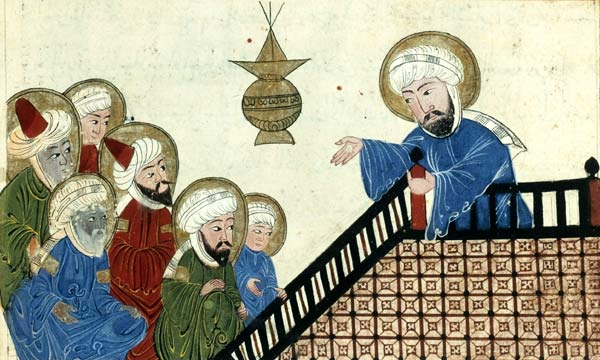
In the Quran, the holy book of Muslims, Surah Al-Ana’am: 59 lays down his message for the earth. Allah is he who has the “keys to all that is hidden”, and “He knows whatever there is in the earth and the sea”.
It is clear then that as far as one’s astrology horoscope in Islam is concerned, it ventures on the unfaithful side of religion. One must also consider the idea of ‘qadr’ or destiny, is also important within these contradictions. It stems from Allah’s full knowledge of all that goes on in the universe, and all that will take place. Muslims must commit to Allah’s faith, his angels, his books and words. It also plays a role in the day of judgement, and thus, a “Divine Decree about good and evil.”
What is astrology in Islam?
So really, what is astrology in Islam? As you can tell, there is a wide and sometimes contradictory system of opinions. While Muslims connect with the stars and movements of celestial bodies through numerology and astronomy, there appears to be a fine line of prediction that they must not cross. And while some find astrology important in the name of science, others don’t find it acceptable in the very fundamental rules of Islamic tradition. And then, there are those who question human capabilities to carry it out at all. Nonetheless, the paintings and scriptures in medieval times show that astrology has certainly had a cultural impact on Muslims. All in all, it has a unique shape in the lives of Muslims.

